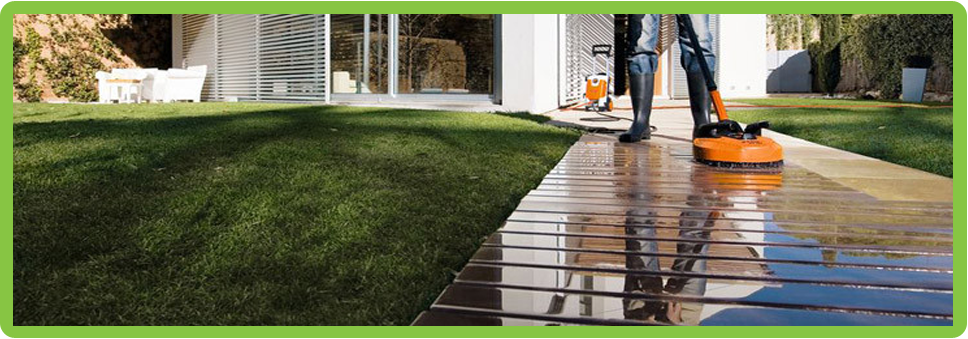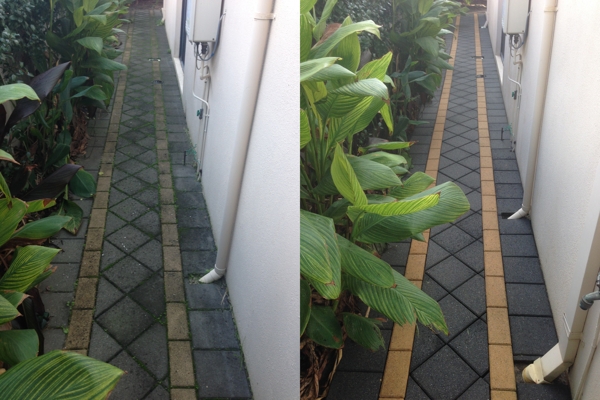

Frequently Asked Questions (FAQs)
FAQ 1. What type of cleaning do you do?
a. We have the equipment to handle industrial, commercial, marine, Government and of course, heavy domestic cleaning jobs. We have Scaffolding and Elevated Work Platform which enables us to clean at heights.
FAQ 2. How do you charge?
a. We quote each job on the basis of a number of factors, and from a square metre rate to an hourly or day rate. We inspect your property thoroughly and provide you with a detailed, itemised, no obligation, free up front quote on the spot – emailed straight to your inbox. If you are happy to proceed we can go ahead and immediately arrange a suitable time to get started.
FAQ 3. Do you guarantee your work?
a. Absolutely! If the job is not completed to your satisfaction, you will not have to pay a cent. Please take a few minutes to read our 8 point Code of Conduct and Iron Clad Guarantee on this website
FAQ 4. Do you use cold or hot water?
a. We have the ability to use both Hot and Cold depending on the best procedure for cleaning a particular job. Our equipment uses water heated to a very high temperature. By using such hot water, combined with very high pressure we are able to remove the most stubborn stains and oil as well as reduce our reliance on harsh chemicals.
FAQ 5. Why should I pressure clean?
a. In the case of commercial premises and Government or Shire owned property, again, regular professional pressure cleaning saves money over time, uses less water and cleaning agents and keeps staff and public areas clean and safe. This is critical to minimising your exposure to risk of Workplace Health and Safety breaches, personal accident and injury claims, and possible steep fines from the Department of Environmental Conservation when trying to clean yourself. In the case of domestic properties, regular, professional pressure cleaning helps to preserve your paintwork. By regularly removing mould and mildew, grease, dust and cobwebs, your property remains cleaner and has a higher curb appeal. If the property is cleaned on a regular basis, it is not such a big job and this saves you money over time, as well as protecting your valuable property. Another bonus; it saves you from doing the hard work! The key word here though is ‘professional’. A pressure cleaner in the hands of someone who is not properly trained can cause untold damage to property. It can strip paintwork, kill plants and grass and even gouge into concrete. So when you are choosing a company to pressure clean your property, you really do need to be sure that their staff are trained to assess the scope of your particular job and apply the correct combination of pressure, temperature and cleaning agents to give you outstanding results.
FAQ 6. How much mess does it make?
a. The idea is that we take away the mess, not create a new one! Our machinery has the capability to recover the water we use, recycle and re-use it, so you are not going to be left with a soggy mess or a hefty fine because wastewater is running from your premises into the drains. This also makes our process ideal for cleaning artificial grass and synthetic outdoor carpets. Traditionally, high-pressure cleaners blast dirt and grit to the surface of such ground coverings but do not actually remove it completely. This means that more mess can be generated than eliminated. Our system completely removes the dirt that is brought to the surface by the water.
Should Ask Questions (SAQs)
![]()
It can be quite a challenge to find a company that has the equipment and skill to get your cleaning job done properly the first time around. While there are questions that we are frequently asked by people looking for a commercial pressure cleaning service, there are also a few questions that people should be asking, but are possibly not aware of. These are the questions we encourage you to ask of a pressure cleaning company before you trust them with your work.
SAQ 1. What type of pressure cleaning equipment do you use?
a. This may sound like a silly question, but the reality is that pretty much anyone can go and buy a pressure-cleaning unit for as little as $2000 and start a pressure cleaning business. At the end of the day, a unit like that is only going to give the option of a cold water clean. And it will require more water, more chemicals and more time to try and do the job properly. Just try to wash your dishes next time in cold water and you can see what we mean. Unfortunately, time and again we have seen very disappointing cleaning results from using a low pressure cleaner. If the operator is not properly trained to use a pressure cleaner, irrespective of the PSI (pounds per square inch), they can still do a lot of damage to your property.
SAQ 2. What is the ideal PSI for pressure cleaning?
a. This will vary depending on the surface and the required results for individual jobs. However pressure cleaning units available in hardware stores have no were near the cleaning power required for optimal results. Our higher pressure system saves water and time, and also means we need to use fewer chemicals.
SAQ 3. What temperature do you heat your water to?
a. Its essential to know if the contractor heats their own water because when water is heated to a minimum of 56 degrees, it actually doubles it’s cleaning power. And the capacity to clean increases for every 18 degrees thereafter. Our system heats the water to temperatures of up to 120 degrees, so regardless of what pressure we are running, we will have a greater cleaning ability (Multiple times the cleaning power of cold water) then cleaning power of a cold water unit. This intense heat removes oil extremely efficiently, much more so than cold or warm water, and requires far less harsh or abrasive chemical to do so. It really is a powerful and environmentally friendly option.
SAQ 4. Do you recycle the water you use?
a. This is becoming an increasingly important consideration. The Department of Environmental Protection (DEP) can and does impose harsh fines on businesses that do not dispose of their wastewater in an environmentally friendly manner. After cleaning, our state of the art machinery effectively ‘vacuums up’ the waste, so that you are not left with filthy water running out into the drains and potentially creating a health or safety hazard, environmental damage or hefty fines


|

|

Copyright c 2014, Pressure cleaning Perth












